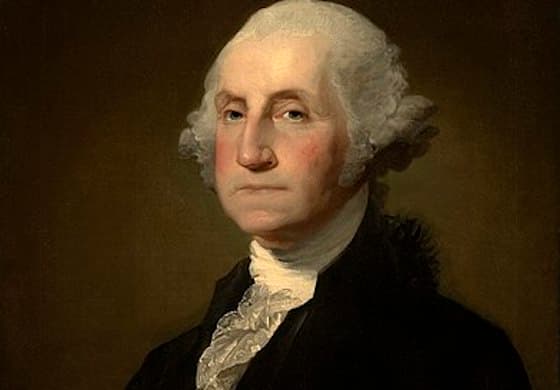George Washington’s Ride to the Right Side of History
The author’s coupling of the terms honor and fame imply that the two concepts that drove Washington into the public arena are what ought to distinguish our greatest president.

‘George Washington: His Quest for Honor and Fame’
By Peter R. Henriques
University of Virginia Press, 176 Pages
For George Washington, fame without honor was worthless, and ambition without an accompanying devotion to the public good would expose him to the contempt of posterity. Like Winston Churchill, Washington, even in his extreme youth, seemed already primed to ask himself: What will history make of me?
After so many biographies of Washington, long and short, some of them written by Peter Henriques, what is left to say? This octogenarian, as he calls himself, does not even mention our own age, yet his coupling of the terms honor and fame imply that the two concepts that drove Washington into the public arena are what ought to distinguish our greatest president.
As Mr. Henriques shows, Washington grew up under the guidance of powerful mentors — the Virginia Fairfaxes, who set him to survey their land; his half brother, Lawrence (his father’s son by a first marriage), who paraded the plaudits to be earned in a military career, and the royal governor Robert Dinwiddie, who entrusted to Washington, barely in his 20s, the task of telling the French to steer clear of the western land Great Britain claimed.
This youthful prodigy of the powerful, as Mr. Henriques acknowledges, could be hasty in careening toward the fame he craved, attacking the French prematurely and causing an international incident that led to the French and Indian War. Still in his 20s, Washington sulked about not getting a royal commission.
Washington’s early, fretful letters gave way to an understanding that sometimes it was best to say little, or perhaps nothing at all while doing one’s duty. At the same time, as Mr. Henriques points out, Washington coveted property, which was a way of gaining prosperity and authority. He could be hard on settlers of his land, and even harder on those, white and black, who worked for him.
Washington’s single-minded quest for honor might well have made him a hard man to like. In fact, though, he was good company — a fine dancer and a horseman so superb that he invited the kind of grandiose tributes to his grace in the saddle that any star of movie Westerns would envy.
During the revolutionary years, Washington turned from an aristocratic world to a democratic one, while never forsaking his allegiance to a ruling class — but one that was representative of the consent of the governed. He parted company with fellow Virginians Patrick Henry, Thomas Jefferson, and James Madison, increasing a devotion to a central government that in his view was necessary to curb the conflicting interests of the states.
Near the end of his life, after a second contentious term in the presidency made him more partisan, Washington retired to Mount Vernon, remaining active in politics and even ready to resume military command if the French invaded at a time when they were attacking American ships and treating the United States during the Adams administration as a virtual ally of Great Britain.
The last, most important part of Mr. Henriques’s book is the treatment of Washington as slaveholder. Mr. Henriques shows that Washington lacked empathy for the enslaved, treated house slaves brutally, and relentlessly pursued runaways.
So why was he the only American Founder to write a will freeing his slaves? As Mr. Henriques puts it, Washington always wanted to be on the right side of history. He had profited from slavery while acknowledging it as an evil. If he had not been willing to put his prestige at the service of abolition, believing to do so would wreck a union of states still quite fragile, he nonetheless looked forward to a day when slaves would be freed.
Mr. Henriques makes the important point that Washington never supported colonization societies planning to return slaves to Africa. In short, he envisioned, if he did nothing to enact, equality as articulated in the Declaration of Independence that would become a reality for black people.
Mr. Henriques seems certain that Washington could not have done more, thus rejecting certain contemporary arguments that reject Washington’s legacy because he was a slaveholder. In other words, it is as if Mr. Henriques is saying Washington could not do it all, but he showed us what doing our all would mean.
Mr. Rollyson’s forthcoming book is “Making the American Presidency: How Biographers Shape History.”

